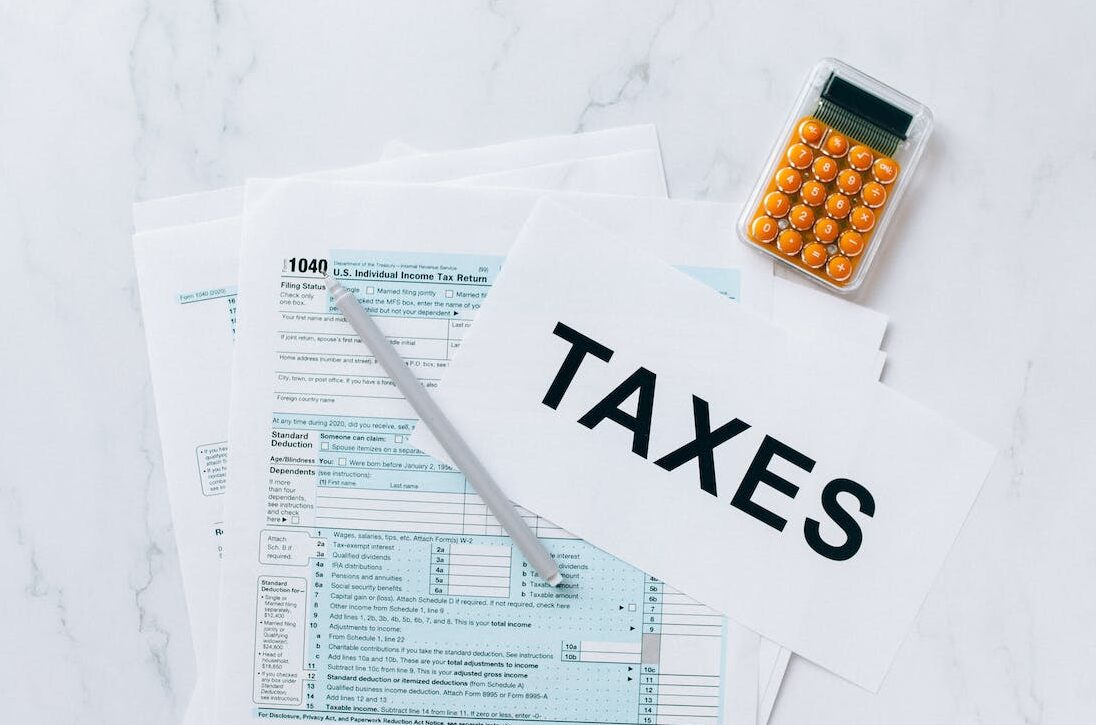An In-Depth Look at Taxes: Definition, Types, and How They Impact Your Finances
Taxes can be complicated and overwhelming, but understanding their impact on your finances is crucial. In this in-depth article, we will dive into the definition and types of taxes, shedding light on how they can affect your financial situation.
From income taxes to property taxes and everything in between, we will explore the various types of taxes that individuals and businesses may encounter. By explaining the basics and offering real-world examples, we aim to demystify the complex world of taxation.
Whether you’re a seasoned taxpayer or just starting out, this article will provide valuable insights into navigating the tax landscape. Learn how taxes are calculated, how they fund public programs and services, and how they can impact your bottom line.
Stay tuned as we break down the intricacies of taxes, help you understand your rights and responsibilities as a taxpayer, and provide practical tips for making informed decisions. By the end of this comprehensive guide, you will have a better grasp of taxes and how they play a significant role in your financial life.
What are taxes and why are they important?
Taxes are mandatory fees imposed by the government on individuals and businesses to fund public programs and services. They are a crucial part of any economy as they help generate revenue for the government to invest in infrastructure, healthcare, education, and various other sectors. Without taxes, it would be nearly impossible for governments to function effectively and provide essential services to their citizens.
Taxes play a vital role in shaping the economic landscape of a country. They promote income redistribution, ensuring that wealth is distributed more equitably among the population. Additionally, taxes can be used as a tool to incentivize certain behaviors and discourage others. For example, higher taxes on tobacco products can discourage smoking, while tax breaks for renewable energy can encourage investment in sustainable practices.
Understanding the basics of taxes is essential for every individual and business owner. It allows you to make informed financial decisions, minimize your tax liability, and ensure compliance with the law. Let’s explore the different types of taxes you may encounter.
Types of taxes – income tax, sales tax, property tax, etc.
There are various types of taxes imposed by governments at different levels. Each type of tax serves a specific purpose and is levied on different sources of income or transactions. Here are some common types of taxes you may come across:
Income Tax
Income tax is the most familiar and widely paid tax by individuals. It is imposed on the income earned by individuals, including wages, salaries, tips, and investments. The tax rate typically increases as income rises, following a progressive tax system. Understanding how income tax is calculated is crucial for financial planning and budgeting.
Sales Tax
Sales tax is a consumption tax imposed on the sale of goods and services. It is usually a percentage of the purchase price and varies from one jurisdiction to another. Sales tax is collected by businesses on behalf of the government and is paid by the end consumer. This tax is an important source of revenue for state and local governments.
Property Tax
Property tax is a tax levied on the value of real estate, including land, buildings, and any improvements made to the property. It is typically imposed by local governments and used to fund public schools, infrastructure projects, and other local services. Property tax rates vary depending on the location and assessed value of the property.
Excise Tax
Excise taxes are levied on specific goods or activities, such as alcohol, tobacco, gasoline, and luxury items. These taxes are often referred to as “sin taxes” as they aim to discourage the consumption of harmful or non-essential products. Excise taxes can also be imposed on activities like gambling or the use of certain services.
Corporate Tax
Corporate tax is a tax levied on the profits earned by businesses and corporations. The tax rate depends on the company’s taxable income and can vary between jurisdictions. Corporate tax is an essential source of revenue for governments and plays a significant role in economic policymaking.
These are just a few examples of the many types of taxes imposed by governments. Each tax has its own set of rules and regulations, and understanding them can help you navigate the complexities of the tax system. Now, let’s delve into how taxes are collected and used by the government.
How taxes are collected and used by the government
The collection of taxes is a crucial process that ensures governments have the necessary funds to provide public goods and services. Let’s take a closer look at how taxes are collected and how the government utilizes these funds:
Tax Collection Process
Tax collection involves several steps, starting with the assessment and reporting of income or taxable transactions. For individuals, this often involves filing an annual tax return, while businesses may have additional requirements. Taxes can be collected through various methods, including withholding taxes from paychecks, self-assessment, or direct payment to the tax authorities.
Allocation of Tax Revenue
Once taxes are collected, the government allocates the funds to various sectors and programs. These allocations are determined by budgetary priorities, economic conditions, and the needs of the population. Common uses of tax revenue include funding education, healthcare, defense, infrastructure development, social welfare programs, and public safety.
Economic Stimulus and Fiscal Policy
Taxes can also be used as a tool for economic stimulus and fiscal policy. During times of economic downturn, governments may reduce taxes or provide tax incentives to encourage consumer spending and business investment. Conversely, during periods of economic growth, taxes may be increased to manage inflation and maintain fiscal stability.
Understanding how taxes are collected and utilized is essential for taxpayers. It allows individuals and businesses to have a clearer understanding of where their tax dollars go and how they contribute to the overall functioning of society. Now, let’s explore the impact of taxes on individuals and businesses.
The impact of taxes on individuals and businesses
Taxes have a significant impact on both individuals and businesses, shaping their financial situations and influencing their decision-making processes. Here are some key ways in which taxes can affect individuals and businesses:
Personal Finances
Taxes can have a direct impact on an individual’s personal finances, affecting their disposable income and overall financial well-being. Higher tax rates can reduce the amount of money individuals have available to spend or save, potentially impacting their standard of living. Understanding your tax liability and exploring opportunities for tax deductions and credits can help minimize the impact on your personal finances.
Business Operations and Profitability
For businesses, taxes can affect their bottom line and overall profitability. Corporate tax rates, payroll taxes, and other business-related taxes can significantly impact a company’s financial performance. Proper tax planning and strategic decision-making can help businesses mitigate their tax liability and improve their financial outlook.
Investment Decisions
Taxes can also influence investment decisions. Capital gains taxes, for example, can impact the returns on investments and potentially influence investment strategies. Understanding the tax implications of different investments can help individuals and businesses make informed decisions and optimize their investment portfolios.
Economic Growth and Job Creation
Tax policies can play a crucial role in promoting economic growth and job creation. Lower tax rates and incentives for businesses can encourage investment, innovation, and entrepreneurship. By providing businesses with a favorable tax environment, governments can stimulate economic activity and create employment opportunities.
Navigating the complexities of taxes is essential for individuals and businesses alike. By understanding the impact of taxes on your financial situation, you can make informed decisions and take advantage of available opportunities. Now, let’s explore some common tax deductions and credits that can help minimize your tax liability.
Common tax deductions and credits
Tax deductions and credits are valuable tools that can help individuals and businesses reduce their taxable income and lower their overall tax liability. Here are some common deductions and credits that you should be aware of:
Standard Deduction
The standard deduction is a fixed amount that taxpayers can deduct from their taxable income without the need for itemizing specific expenses. It provides a simplified way to reduce your tax liability, especially if you don’t have significant itemized deductions.
Itemized Deductions
Itemized deductions allow taxpayers to deduct specific expenses they incurred throughout the year. Common itemized deductions include mortgage interest, state and local taxes, medical expenses, and charitable contributions. Itemizing deductions can be beneficial if your total deductible expenses exceed the standard deduction.
Child Tax Credit
The Child Tax Credit provides a tax credit for parents or guardians with dependent children. This credit can help lower your tax liability and may even be refundable in certain cases. Understanding the eligibility criteria and the amount of credit you can claim is essential for maximizing your tax savings.
Education Tax Benefits
Several tax benefits are available for individuals pursuing higher education. These include the American Opportunity Credit, the Lifetime Learning Credit, and the Student Loan Interest Deduction. Taking advantage of these credits and deductions can help offset the costs of education and reduce your tax burden.
Retirement Contributions
Contributions to retirement accounts, such as 401(k) plans or Individual Retirement Accounts (IRAs), can be tax-deductible. These deductions can help individuals save for retirement while reducing their current tax liability. Understanding the contribution limits and tax implications of retirement accounts is crucial for long-term financial planning.
These are just a few examples of the many tax deductions and credits available. Understanding the specific rules and requirements for each deduction or credit can help you optimize your tax savings. Now, let’s explore some strategies for minimizing your tax liability.
Strategies for minimizing your tax liability
Minimizing your tax liability involves strategic planning and taking advantage of available tax-saving opportunities. Here are some strategies that can help you reduce your tax burden:
Maximize Retirement Contributions
Contributing the maximum allowable amount to retirement accounts can help lower your taxable income. This not only helps you save for the future but also reduces your current tax liability. Take advantage of employer-sponsored retirement plans and individual retirement accounts to maximize your contributions.
Explore Tax-Advantaged Investments
Certain investments, such as municipal bonds or tax-deferred annuities, offer tax advantages. Interest earned from municipal bonds is typically tax-free, while tax-deferred annuities allow you to defer taxes on investment gains until you withdraw the funds. These investments can be valuable tools for reducing your tax liability.
Take Advantage of Tax Credits
Tax credits provide a dollar-for-dollar reduction in your tax liability. Explore available tax credits, such as the Earned Income Tax Credit, the Child and Dependent Care Credit, and the Savers Credit. Understanding the eligibility criteria and claiming these credits can significantly reduce your tax bill.
Plan Charitable Contributions
Charitable contributions can be tax-deductible if you itemize your deductions. Carefully plan your charitable giving to maximize your tax savings. Consider donating appreciated securities or utilizing donor-advised funds for added tax benefits.
Consider Tax Loss Harvesting
Tax loss harvesting involves selling investments that have experienced losses to offset capital gains and reduce your taxable income. This strategy can be valuable for managing your tax liability, especially if you have investment losses.
Implementing these strategies requires careful planning and consideration of your individual financial situation. Consulting with a tax professional or financial advisor can provide personalized guidance and ensure you make the most of available tax-saving opportunities. Now, let’s explore the role of tax planning in financial management.
The role of tax planning in financial management
Tax planning is a crucial aspect of financial management, helping individuals and businesses optimize their tax savings and minimize their tax liability. Here are some key ways tax planning can benefit your financial situation:
Maximizing Tax Savings
Effective tax planning allows individuals and businesses to identify opportunities for tax savings. By strategically structuring your finances and taking advantage of available deductions, credits, and exemptions, you can minimize your tax liability and maximize your savings.
Budgeting and Financial Forecasting
Tax planning requires a thorough understanding of your financial situation. By analyzing your income, expenses, and potential tax implications, you can develop a comprehensive budget and financial forecast. This allows for better financial management and ensures you have the necessary funds to meet your tax obligations.
Estate Planning and Wealth Preservation
Tax planning is a crucial component of estate planning and wealth preservation. By implementing strategies such as trusts, gifting, and charitable giving, individuals can minimize estate taxes and ensure the smooth transfer of assets to future generations.
Compliance and Risk Management
Proper tax planning ensures compliance with tax laws and regulations, reducing the risk of penalties or audits. By staying up-to-date with tax requirements and maintaining accurate records, individuals and businesses can mitigate potential risks and ensure smooth tax filing processes.
Tax planning should be an ongoing process, incorporating changes in tax laws, personal circumstances, and financial goals. Consulting with a tax professional can provide valuable insights and ensure you are making informed decisions. Now, let’s explore how changes in tax laws can affect your finances.
How changes in tax laws affect your finances
Tax laws are constantly evolving, and changes in tax legislation can have a significant impact on your finances. Here are some ways in which changes in tax laws can affect you:
Income Tax Rates
Changes in income tax rates can directly impact the amount of tax you owe. Increases in tax rates can reduce your disposable income, while decreases can provide potential tax savings. Staying informed about changes in tax rates allows you to plan accordingly and adjust your financial strategies.
Deductions and Exemptions
Changes in tax laws can affect the availability and limits of deductions and exemptions. Elimination or reduction of certain deductions can increase your taxable income, while the introduction of new deductions can provide additional tax savings. Understanding these changes is essential for optimizing your tax planning.
Tax Credits
Changes in tax laws can also impact the availability and amount of tax credits. New credits can provide additional opportunities for tax savings, while changes to existing credits can affect your eligibility and the value of the credit. Staying informed about these changes allows you to take advantage of available tax credits.
Estate and Gift Taxes
Estate and gift tax laws can undergo significant changes, impacting wealth transfer and estate planning strategies. Understanding the current estate and gift tax laws is crucial for preserving your wealth and ensuring efficient asset transfer to future generations.
Keeping up with changes in tax laws can be challenging, but it is essential for effective tax planning. Consulting with a tax professional or staying informed through reputable sources can help you understand the impact of these changes on your financial situation. Now, let’s explore the importance of working with a tax professional.
The importance of working with a tax professional
Navigating the complexities of taxes can be daunting, and working with a tax professional can provide numerous benefits. Here’s why it’s important to consider engaging the services of a tax professional:
Expertise and Knowledge
Tax professionals possess the expertise and knowledge necessary to navigate the intricacies of tax laws and regulations. They stay up-to-date with the latest changes, ensuring you receive accurate and timely advice. Their expertise can help you optimize your tax planning and minimize your tax liability.
Personalized Guidance
Every individual or business has unique tax situations and financial goals. Tax professionals can provide personalized guidance.



